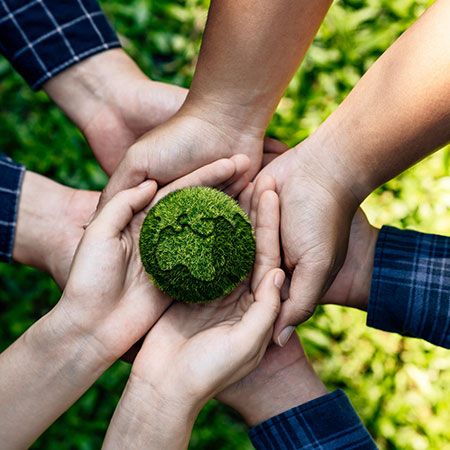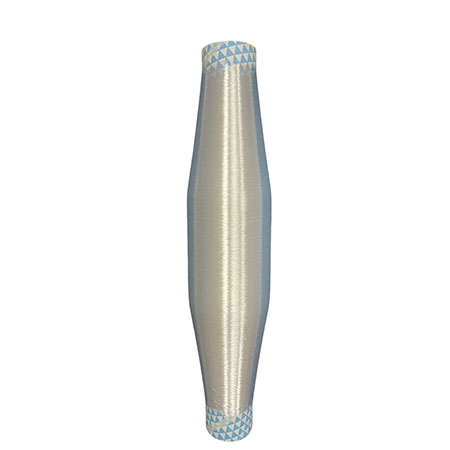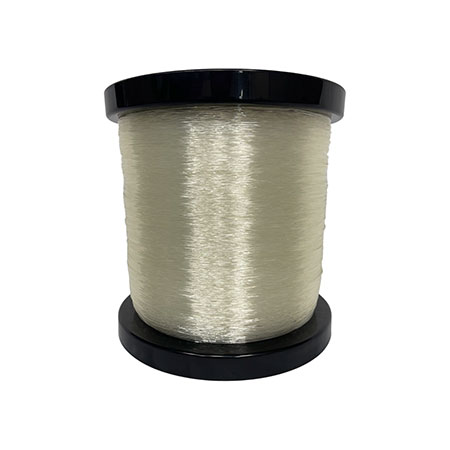Sustainable and High-Quality Recycled Yarn Manufacturer.
Sustainable Fashion Starts with Recycled Yarn
Unlocking the Potential of Eco-Friendly Textiles
At the intersection of innovation and environmental consciousness lies Recycled Yarn—a game-changer in the textile industry. Let’s delve into what makes this yarn so remarkable and how it’s reshaping the way we think about fashion.
Sustainable Fashion Starts with Recycled Yarn
Unlocking the Potential of Eco-Friendly Textiles
At the intersection of innovation and environmental consciousness lies Recycled Yarn—a game-changer in the textile industry. Let’s delve into what makes this yarn so remarkable and how it’s reshaping the way we think about fashion.
Recycled Yarn
Sustainable Choice: Recycled Monofilament
Due to the increasing awareness of environmental protection, many countries have already implemented the recycling and classification of post-consumer plastics. Therefore, properly utilizing these plastic wastes has become extremely critical. Recently, recycled monofilaments have been widely applied in various industries, such as footwear, curtains, among others. There are five main reasons for using recycled monofilaments:
Eliminate non-decomposable waste on earth
More energy-efficient and carbon-reducing production processes, lower the impact of carbon emissions on climate change
Reduce the direct impact of plastic wastes on the environment
Mitigate the direct impact of plastic waste on other creatures and the indirect impact on humans
Lower carbon emission during production leads to lower carbon import tax while enhancing product competitiveness
That is, the application of recycled monofilament not only helps maintaining the health and living environment of humans and other living organisms but also enhances the competitiveness of these products.
Recycled Polyester Monofilament
Due to the increasing concern for environmental protection among global brand customers, the Global Recycled Standard (GRS) has become one of the most well-known environmental certification systems in the market. In order to supply recycled monofilaments to our brand clients and business partners, Guan Lin Industrial obtained GRS certification and started purchasing recycled polyester pellets from GRS certified suppliers in 2018.
The GRS system classifies recycled polyester pellets into two categories: pre-consumer recycled and post-consumer recycled. Pre-consumer recycled polyester pellets are sourced from scraps generated during the production processes of polyester pellets, yarns, fabrics and so on. These scraps are broken into flakes and granulated into pellets.
Different from pre-consumer polyester pellets, the main source of post-consumer recycled pellets is recycled plastic bottles. After consumers drink the beverage or water from these bottles, the bottles will be recycled, washed, broken into flakes, and eventually granulated into recycled polyester pellets. The use of both pre and post-consumer recycled polyester chip helps reducing the risk of having plastics present in the environment.
Material: GRS Certified Pre/Post-Consumer Recycle Polyester
Color: Transparent or customized color
Country of Origin: Taiwan
Cross Sectional shape: Circle, triangle and flat
Main Application: Footwear, curtain and so on
Diameter: 0.08mm~1.0mm
Denier: 60D~10000D
The diameter and physical properties (including breaking strength/Elongation and hot air/boiling water shrinkage) of Monofilaments can be modified according to costumers’ needs.
Application- Footwear
According to statistics, billions of PET bottles are consumed worldwide annually, causing significant effects on the environment, animal ecology and climate change. As a result, numerous brands in the textile industry have started to utilized recycled yarns (including recycled monofilaments) produced from bottle flakes in their products. Recycled monofilaments can be found in various textile products, such as clothes, bras, and footwear. Take the footwear industry for example. The footwear market has emphasized features including lightweight, permeability, and transparency. By utilizing the characteristics of monofilaments along with proper structural design of the fabric, these demands can be met. However, why is “recycled polyester” monofilament more suitable than monofilaments made from different materials for the footwear industry? There are five main factors:
High processing temperature, suitable for post-processing in footwear industry
Good color fastness
Excellent weather resistance
Lower price compared to other recycled materials
Lower carbon emissions during the production process of recycled monofilament
Among these factors, low carbon emission is the main advantage of recycled monofilaments. Comparing to virgin materials, the production of recycled PET pellets requires less energy consumption due to the lack of petroleum refining process.
This results in lower carbon emissions. By reducing carbon emissions in the production process, the impact of carbon emissions on the environment and climate change can be mitigated.
Nylon/Polyamide Monofilament
Nylon has been widely utilized in various industries and products since its invention in 1935. However, the extensive use of petrochemical materials such as nylon by humans has caused significant environmental damage and has had a profound impact on animal ecology. The ocean, in particular, has been severely affected by this serious ecological devastation. Many fishermen and anglers directly discard damaged fishing nets and trash into the sea, resulting in marine debris that not only causes the death and poisoning of marine creatures but also ultimately harms humans themselves. Therefore, reducing, reusing and recycling nylon products have become important issues.
By properly collecting, sorting and cleaning discarded fishing nets and other marine debris, it is possible to transform these wastes into nylon monofilaments through granulation and extrusion. Since these nylon pellets are obtained from recycling marine debris instead of petroleum refinement, the production process becomes more energy-efficient and carbon-reducing
Material: GRS Certified Pre/Post-consumer Recycled Nylon/Polyamide
Color: Transparent
Country of Origin: Taiwan
Cross-Sectional Shape: Circle、Triangle、Flat
Main Application: Footwear、Filter、Medical use
Diameter: 0.08mm~1.0mm
Denier: 50D~8000D
The diameter and physical properties (including breaking strength/Elongation and air/boiling water shrinkage) of Monofilaments could be modified according to costumers’ needs.
We are a dedicated manufacturer offering premium Recycled Yarn. Our commitment to sustainability drives our textile production. Explore our eco-friendly Recycled Yarn products..
1. The Basics: What Is
Source Materials:
Manufacturing Process: Manufacturers collect, sort, and clean the raw materials. Next, they shred or melt them down, creating a new fiber that retains the strength and quality of virgin yarn. The result? A circular economy in action.
2. Why Choose
Environmental Impact: By opting for
Quality and Versatility: Don’t let the “recycled” label fool you.
3. The Fashion Revolution: Applications
Apparel: Designers worldwide are embracing
Home Textiles: Cushions, blankets, and rugs—your home can be both stylish and sustainable.
4. How to Choose the Right
Certifications: Look for certifications like the Global Recycled Standard (GRS). These ensure that the yarn meets strict sustainability criteria.
Blend Options:
5. A Brief History
6. Common Questions
Is
Can I machine wash it? Absolutely! Most
7. Supporting Responsible Manufacturers
As a conscious consumer, choose brands committed to sustainability. Seek out manufacturers who prioritize ethical practices and transparent supply chains. When you buy
Remember, the journey toward sustainable fashion begins with small choices. So, next time you knit or crochet, consider the impact of your yarn choice. Choose
By weaving together creativity and eco-consciousness, we’re shaping a better world—one stitch at a time.
1. The Basics: What Is
Recycled Yarn
?Recycled Yarn
is precisely what it sounds like: yarn made from recycled materials. It’s a sustainable alternative to conventional yarn, contributing to reduced waste and a lighter ecological footprint. But how does it work?Source Materials:
Recycled Yarn
can be crafted from various sources, including post-consumer plastic bottles, discarded fabrics, and even old garments. These materials undergo a meticulous process to transform them into usable fibers.Manufacturing Process: Manufacturers collect, sort, and clean the raw materials. Next, they shred or melt them down, creating a new fiber that retains the strength and quality of virgin yarn. The result? A circular economy in action.
2. Why Choose
Recycled Yarn
?Environmental Impact: By opting for
Recycled Yarn
, you actively participate in waste reduction. Every skein you choose diverts plastic from landfills and oceans, making a tangible difference.Quality and Versatility: Don’t let the “recycled” label fool you.
Recycled Yarn
boasts excellent quality, durability, and versatility. It’s ideal for everything from cozy sweaters to lightweight summer tops.3. The Fashion Revolution: Applications
Apparel: Designers worldwide are embracing
Recycled Yarn
for clothing. Imagine a chic sweater made from repurposed plastic bottles—fashion with a conscience.Home Textiles: Cushions, blankets, and rugs—your home can be both stylish and sustainable.
4. How to Choose the Right
Recycled Yarn
Certifications: Look for certifications like the Global Recycled Standard (GRS). These ensure that the yarn meets strict sustainability criteria.
Blend Options:
Recycled Yarn
often blends seamlessly with other fibers like organic cotton or Tencel. Experiment with different blends to find your favorite.5. A Brief History
Recycled Yarn
isn’t a recent phenomenon. It has roots in the early 20th century when resourcefulness was essential during wartime. Today, it’s a symbol of progress and conscious consumerism.6. Common Questions
Is
Recycled Yarn
scratchy? Not at all! Modern techniques ensure softness and comfort.Can I machine wash it? Absolutely! Most
Recycled Yarn
s are machine washable.7. Supporting Responsible Manufacturers
As a conscious consumer, choose brands committed to sustainability. Seek out manufacturers who prioritize ethical practices and transparent supply chains. When you buy
Recycled Yarn
, you’re supporting a greener future.Remember, the journey toward sustainable fashion begins with small choices. So, next time you knit or crochet, consider the impact of your yarn choice. Choose
Recycled Yarn
—where style meets responsibility.By weaving together creativity and eco-consciousness, we’re shaping a better world—one stitch at a time.
 English
English Français
Français Deutsch
Deutsch Русский
Русский Português
Português Italiano
Italiano हिन्दी
हिन्दी Español
Español Nederlandse
Nederlandse العربية
العربية Tiếng Việt
Tiếng Việt ภาษาไทย
ภาษาไทย Bahasa Indonesia
Bahasa Indonesia বাঙ্গালী
বাঙ্গালী Türk
Türk 繁體中文
繁體中文


